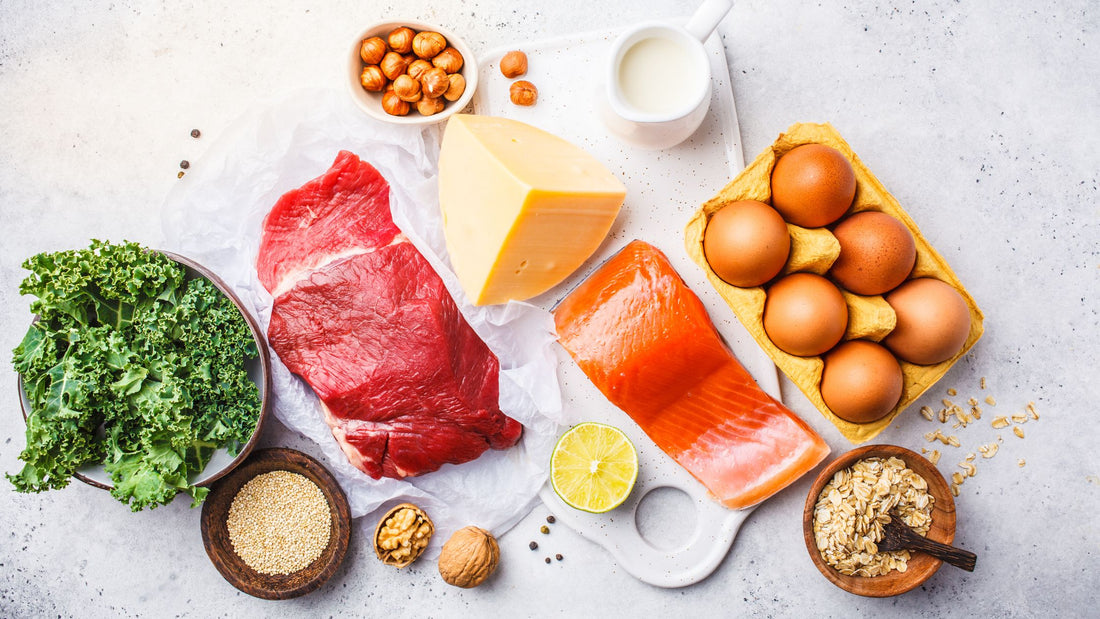
How to Create a Balanced Diet for Your Baby: A Comprehensive Guide
Share
Introducing your baby to solid foods is an exciting milestone, but it also comes with questions about how to provide a balanced and nutritious diet. Just as adults benefit from a well-rounded diet, so do babies—perhaps even more so during this crucial stage of growth and development. This guide will provide insights into creating a balanced diet for your baby, discussing key nutrients, recommended foods, and practical tips for a healthy baby food plan.
Why a Balanced Diet is Important for Babies
A balanced diet provides the essential nutrients a baby needs to support physical and mental growth, immune function, and development. Since babies are growing rapidly, their nutritional needs differ from those of older children and adults. Introducing a variety of foods during this early stage not only helps to fulfil their dietary needs but also helps them develop a positive relationship with food and diverse flavours.
Key Nutrients for a Balanced Baby Diet
1. Proteins
- Importance: Proteins are crucial for growth and development, helping to build muscles, skin, and other tissues.
- Sources: Introduce proteins through pureed or finely chopped meats (like chicken or turkey), lentils, tofu, and beans. These can be included in meals or as part of baby porridge recipes.
2. Carbohydrates
- Importance: Carbohydrates are the main energy source for babies and fuel their active learning and play.
- Sources: Soft-cooked grains, such as rice, oats, and potatoes, provide excellent sources of carbohydrates. Introducing whole grains can also help babies develop a taste for them early on.
3. Healthy Fats
- Importance: Fats are essential for brain development and overall health.
- Sources: Avocados, full-fat yoghurt, and certain fish (like salmon) contain healthy fats. These can be mashed or pureed and mixed with other foods to provide a creamy texture.
4. Iron and Zinc
- Importance: Iron supports brain function and oxygen transport, while zinc aids in growth and immune health.
- Sources: Iron-rich foods include lentils, spinach, and fortified cereals. Animal-based sources like chicken and lean red meats also offer iron in a form that is more easily absorbed by the body.
5. Fibre
- Importance: Fibre supports digestion and helps maintain regular bowel movements.
- Sources: Fruits, vegetables, and whole grains offer natural fibre. Start with mild, easy-to-digest fruits and vegetables such as apples, pears, sweet potatoes, and carrots.
6. Vitamins and Minerals
- Importance: Vitamins and minerals are vital for a variety of body functions, from maintaining healthy eyes to supporting the immune system.
- Sources: Incorporate a colourful mix of fruits and vegetables to ensure a wide range of vitamins. Leafy greens, berries, and carrots are all excellent options for introducing diverse vitamins.
Tips for Introducing New Foods
- Follow the ‘Three-Day Rule’: Each time you introduce a new food, wait three days before adding another to observe any signs of allergies or intolerances.
- Focus on Fresh Ingredients: Aim to use fresh vegetables, fruits, and grains whenever possible, steering away from overly processed foods.
- Experiment with Textures: As your baby grows, start transitioning from purees to mashed, minced, and eventually soft pieces to encourage chewing.
- Avoid Added Sugars and Salts: Babies’ kidneys are still developing, so it’s best to avoid salt, and sugar can lead to a preference for sweet foods.
Using Seasonings and Enhancing Flavours
Once your baby is familiar with individual foods, consider adding natural seasonings like mushroom powder, garlic powder, or ikan bilis powder to enhance flavour. Using natural seasonings allows you to add taste without introducing added salts or artificial ingredients, making them ideal for flavouring baby meals. Seasonings with single, pure ingredients ensure that your baby receives only natural flavours that fit into a balanced diet.
Planning for Convenience: Tips for Busy Parents
Creating balanced meals daily can feel time-consuming, especially for busy parents. Preparing a few core ingredients in advance can save time and make it easier to put together healthy meals on short notice.
- Batch Cook and Freeze: Make large batches of foods like purees, porridge, and cooked grains, then freeze in single portions. This allows you to defrost and serve when needed.
- Invest in Quality Containers: Opt for BPA-free containers or freezer trays to portion out meals. Labelling each container helps you keep track of what’s on hand.
- Introduce Ready-to-Use Options: Products like instant baby porridges made with natural ingredients can be a convenient solution for days when you’re pressed for time but still want to provide a balanced meal.
Key Takeaways for a Balanced Baby Diet
Creating a balanced diet for your baby doesn’t have to be complicated. Focus on introducing a variety of foods that cover essential nutrients, and remember that building healthy eating habits is a gradual process. Keeping your baby’s meals fresh, simple, and nutritious will support their growth and help them develop a positive relationship with food.
As your baby explores new tastes and textures, you’re helping them set the foundation for a healthy and balanced diet—one meal at a time.

